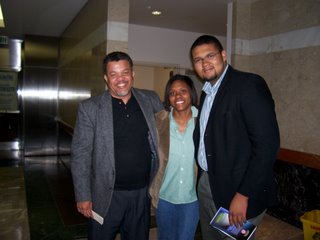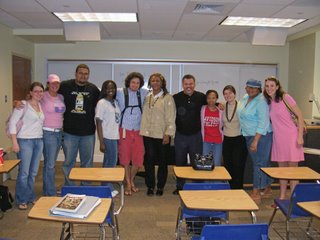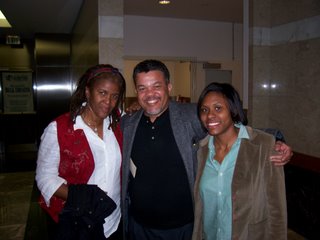But to borrow a phrase from the dancehall (which I am sure is no longer used and shows my age): “Haul and pull up! Rewind, my selector!”
***
My story really begins with me trying to write poems to a girl with whom I was head over heels in love and she was tiring of my fake Khalil Gibran poems. I had to look for inspiration elsewhere. At that time Bob Marley’s music was everywhere, and Dennis Scott had resumed teaching at my alma mater, Jamaica College. I began reading Uncle Time, then The Pond by Mervyn Morris, Reel from the ‘Life Movie’ by Tony McNeill, The Arrivants by Kamau Brathwaite and Another Life by Derek Walcott. I now wanted to write poems with the vision of Marley, the intelligence of Scott, the wit of Morris, the lyricism of McNeill, the experimentation and afro-centrism of Brathwaite, and the imagery of Walcott while maintaining the integrity of my own voice.
And then in 1979, my family and I left Jamaica to become millionaires in Miami.
So, there I was in Miami trying to write poems in a landscape that I could neither read nor understand. Yet, Florida in many ways resembled the rest of the Caribbean. It was history-less. In Florida, there isn’t a cumulative voice, a tradition that one sees in writers such as Hawthorne or Lowell who feel the burden of history, and their writing is an attempt to exorcise the past in order to tell the story of their generation. It’s almost as if they long for the kind freedom exemplified in Ginsberg’s Howl or Kerouac’s On the Road. For I had always been struck by Frantz Fanon’s statement in The Wretched of the Earth: “Each generation out of relative obscurity must discover their destiny and either fulfill it or betray it.”
What was the mission of my generation? Imagine the despair that I felt that I was in Miami wanting to be a writer and having neither the skill in dub poetry that Oku Onoura, Mutabaruka, Mikey Smith, and Malachi possessed, and feeling that I would be left out of telling part of the story because of an accident in geography.
I decided to be brave despite the obstacles and what I saw as my obvious limitations. I did not have the gifts nor the intelligence of the writers of the previous generation nor did I have the talent of the dub poets. I did what I could do. I began writing poems and stories about my experiences of moving from Jamaica to South Florida with the hope that they would find resonance.
But the questions still haunted me: What was the mission of my generation? Who were we? How did I end up here in Miami? Why did I end up in Miami? Was this a part of a larger pattern? How long had this been going on?
My answer to these questions came in the form of Exodus and Other Poems and Florida Bound which examined the following: How did we end up here? Was this part of a larger pattern? Uncle Obadiah and the Alien (the title story originally published in The Caribbean Writer was my initial foray into what is now known as speculative fiction) told the stories of Jamaicans at home and in Miami.
Then came Benjamin, My Son (the thesis for my Master of Arts from University of Miami, which wasn’t published until seventeen years later) where I examined characters, sounds and images that were uniquely Jamaican within the context of Christianity and Rastafari, West African archetypal deities, and the gun/political gang culture using the framework of Dante’s Inferno and the murder/ mystery genre which has now become the staple of South Florida fiction (James Hall, Edna Buchanan and Preston Allen).
As I settled into the Florida landscape I began to see the connections between Miami and the Caribbean and I wrote a sequence of poems, hurricane center, to mirror the yearly round and used the image of the hurricane (with its meteorological and metaphorical implications) and its impact on memory and the attempt to memorialize in a history-less environment. As I furthered my study of Carl Jung and Joseph Campbell, I realized the archetypal significance of West African deities such as Xango, Ọṣun, Ogun, Eshu/Anancy, and Yemoja, and I wrote xango music.
Recently, I have gone back to the question of memory in a novel, A LoveSong for Kathryn, about a woman Kathryn Coleman, a single mother, who is trying to raise her daughter, Jasmine (she belongs to the second generation of Jamaicans that Malachi calls the Jah-Mericans) in Miami. Jasmine, in order to resolve her identity issues, has run away from her mother’s home and joined a New Age cult. The action begins at the start of the hurricane season with the Everglades on fire.
The movement then has been outward in answering: What is the mission of my generation? My tentative answer on a personal level has been to write about the experiences of Jamaicans who have settled in South Florida (which is either first or the final stage of the journey to and from Jamaica). However, on a larger level, I think the mission of my generation is to record, preserve and institutionalize the intellectual and artistic legacy of writers and intellectuals such as Scott, Lamming, McNeill, Marley, Morris, Naipaul, CLR James, Selvon, Felix Morriseau-Leroy, Maryse Conde, Lydia Cabrera, and Fanon, for as Norman Washington Manley once said, “Tradition is something which we have to foster and create and it is a deliberate act of intelligence. It is one of the most powerful forces in the development of the character of a people”.
Recently, the Caribbean Beat blog had two posts about Caribbean genius and a Caribbean canon to which I added my two cents. The post about Caribbean genius asked: What is a genius? and offered some definitions. But I think we have to go a bit further. The appearance of genius is one thing—it’s almost a biological imperative for genius to appear to insure the survival of a population. A larger question remains: Will genius be allowed to survive? The biblical stories about Pharaoh, the Assyrians, and the Babylonians (written by people intent on survival, yet threatened at every turn) are about the preservation of Jewish memory and genius. I’ve added the biblical examples because we are a People of the Book (witness the latest examples of theocracy in Jamaica), but I also believe that be do not have to be bound by the stories in the Book (“Some say we’re just a part of it/ We’ve got to fulfill the Book”). We have the power and the imagination to write our own stories.
This is why I applaud Caribbean Beat, The Caribbean Writer, and the Calabash Literary Festival for their bravery despite seemingly insurmountable obstacles to publish and record the work of Caribbean writers. But does it stop here?
Steven Covey, author of The Seven Habits of Highly Effective People, in his latest book The 8th Habit: Moving from Effectiveness to Greatness, posits that there are four desires common to humanity: to live, learn, love and leave a legacy. Without getting into an argument about the validity of the statement or its correspondence to Maslow’s hierarchy, we still investigate the following: How will we live? How should we live? What are the things we love? What are the things we must learn and unlearn? What should we teach our children to love? What will be our legacy?
The answer to these questions affects our self-esteem and more importantly, the self esteem of our children. For slavery and colonialism have been woven into our hair, food, and language, and we have to ask ourselves: Are we worth anything? Are our children worth anything? How do we measure worth? Is value only measured by GDP and per capita? How do we demonstrate our worth? Are our stories/voices are worth preserving?
Caribbean culture, even as I speak, is being formed by HBO, cell phones, guns, reaggaeton, evangelical fundamentalists, AIDS, homophobia, and drugs, but the shaping of the culture—the work of the naming within the culture remains largely unfulfilled. We must respond to these questions for as Norman Washington Manley also said: “We must dig deep into our own consciousness and accept and reject only those things of which we from our own superior knowledge... (We) need to be the best judges”. Artists perform a vital function in a society because they translate on a sense/emotional level the ideas and aspirations of a people. As Colin Channer has noted, our musicians have done this with reggae and calypso, but as far as the sustained analysis of novels are concerned, there has been a noticeable silence.
The attempt to memorialize is also problematic for the Caribbean because of the yearly round of destructive hurricanes (on the physical and psychic level), the history-lessness which combined with the fact that the Caribbean does not have a surviving indigenous population (with the exception of Guyana and a few pockets) whose myths and stories have not been fully incorporated into the larger story of the region. Our philistinism (our attempt to measure our worth by the accumulation of personal wealth) has meant a neglect of the arts. As Caryl Phillips (part of the Black British writers which include Linton Kwesi Johnson, Zadie Smith, and Benjamin Zephaniah--part of the Caribbean Diaspora?) has said about the Caribbean, “It’s a literate society, but not a literary one”.
Some of this is understandable. The majority of books and movies still being produced are an insult our intelligence. This is why I sometimes get upset with writers such as VS Naipaul, who instead of using his prodigious talent to uplift has now turned to denigration of the Caribbean. I mean that in every sense of the word. And it’s not the diagnosis of a culture that is not welcome. Sparrow and Lord Kitchener skewered you alive. It’s Naipaul’s tone. It’s like when Black comedians use their talent against the weakest among us: Black, gay men. But c’mon. “Help the weak if you are strong.” And don’t get me wrong. I learned to write stories by reading Naipaul. But there is a world of difference between Miguel Street, The Suffrage of Elvira and A Bend in the River.
It comes back again to self-worth which is tied the Word: How do we speak about ourselves? How do we define ourselves? The issue of language is very important. The poorest among us speak only one language: Jamaican or in Haiti, Kreyol. A language, according to Norman Washington Manley, is an act of intelligence, but there are some who would look down on people who speak only Jamaican or Kreyol as unintelligent or “linguistically challenged”, whereas I see it as a lack of education/opportunities. In the Lent section of hurricane center, Jesus confesses to his mother that he was hurt when his friends called him “Joseph’s jacket”. I imagined a Jamaican Jesus (wasn’t he?) and what his friends would say using Jamaican. For the non-Jamaicans, a “jacket” is an illegitimate child. The phrase “Joseph’s jacket” keeps the allusion to Joseph with his famous Technicolor coat and the rumor that was present at Jesus’ time: “Is this not Mary’s son?” (Pagels)
Using Jamaican with its rich tradition of double entendre and Rastafarian worldview is one of the ways that I think that the legacy can be preserved, and I refuse to belittle my brothers and sisters just because they don’t know how to speak the Queen’s English. I also refuse to take on the burden of The Other (Said, Orientalism), for if you come to my country and ask for exotic fruit, I will offer you Canadian apples, strawberries or kiwi. The rest I won’t say because we are in polite company.
Luckily, as my Sabbath school teacher used to say, there are now a “mighty cloud of witnesses” in contemporary Caribbean writing: Robert Antoni, Junot Diaz, Ricardo Pau-Llosa, Claudia Rankine, Lorna Goodison, Ivonne Lamazares, Margaret Cezair-Thompson, Adrian Castro, Marcia Douglas, Marlon James, Christine Craig, Virgil Suarez, Patricia Powell, Dany Laferriere, Nalo Hopkinson, Opal Adisa, Kwame Dawes, Jennifer Rahim, Edwidge Danticat, Colin Channer, Brenda Flanagan, and many, many more. So, as Brother Bob would say, “The preaching and talking is done/we’ve got to live up.”
So, what will be our legacy to our children? Will we be able to say as Norman Washington Manley said at his retirement: "I say that the mission of my generation was to win self-government for Jamaica. To win political power which is the final power for the black masses of my country from which I spring. I am proud to stand here today and say to you who fought that fight with me, say it with gladness and pride: Mission accomplished for my generation." Will we be able to say the same?
***
For more photos of Davidson College, follow this link: http://www.flickr.com/photos/51858402@N00/sets/72057594114278078/show/
Books by Geoffrey Philp



No comments:
Post a Comment